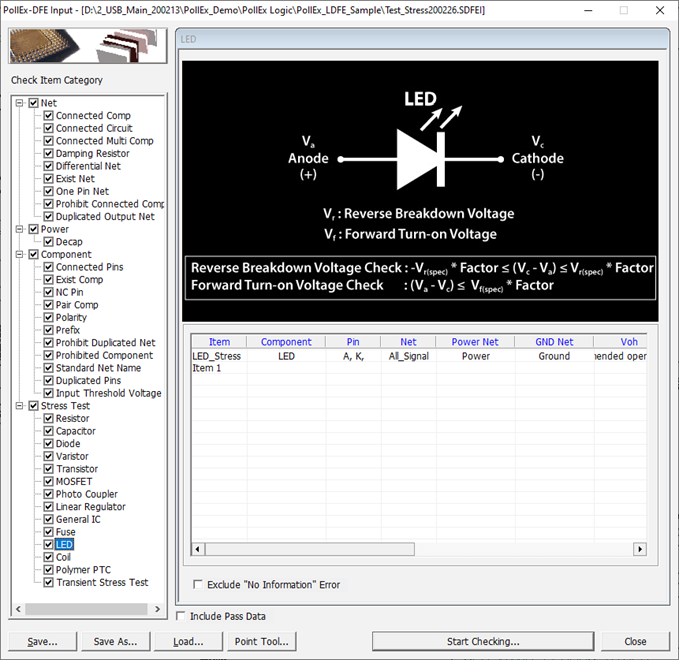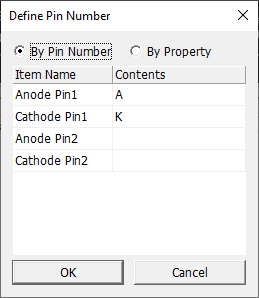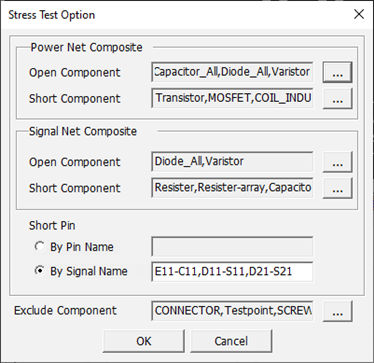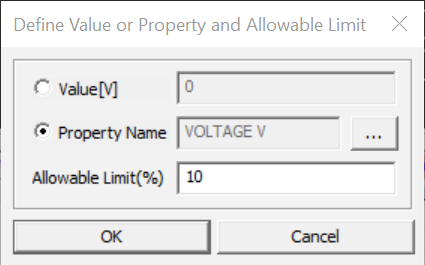LED
This item tracks the voltage and signal lines in the circuit, calculates the voltage value of each net, and checks whether the all LED connected to the net is within the allowable voltage range.

- Component: Select LED component group to be checked.
- Pin: Assign pin
information of LED. User can assign pin number using Pin Number or Pin
Property which contain pin number information.
Figure 2. 
- Net: Select net group to which LED components are connected.
- Power Net: Select power net group to which LED components are connected.
- Ground Net: Select ground net group to which LED components are connected.
- Voh: Set the output high voltage (Voh) of driver pin. You can set this by entering the value directly or select the property name which contain voh value.
- Vol: Set the output low voltage (Vol) of driver pin. You can set this by entering the value directly or select the property name which contain vol value.
- Reverse Voltage Check:
Set the allowable reverse voltage of this LED. You can set this by entering
the allowable value directly or select the property name which contain
allowable reverse voltage value. You can also assign tolerance of this
check.
Figure 3.
- Forward Voltage Check:
Set the allowable forward voltage of this LED. You can set this by entering
the allowable value directly or select the property name which contain
allowable forward voltage value. You can also assign tolerance of this
check.
Figure 4.
Stress Test Option
Set whether passive components are considered short or open when navigating signals and power lines.
-
Double-click the empty field to open the Stress Test
Option dialog.
Figure 5. 
-
Power Net Composite Section: In this step, we declare the component to be
processed short and the component to be opened during power trace navigation.
Since Stress Test is a DC level test, the capacitor is considered as open and
inductor is considered as short. And normally the resistor is considered as
open, because the current of power net is so big that the IR-Drop can’t be
ignored. Since TR and FET are used as switching components, they are regarded as
short when voltage navigating.
-
Signal Net Composite Section: In this section, we declare the component to be
processed short and the component to be opened during signal trace navigation.
Since Stress Test is a DC level test, the capacitor is considered as open and
inductor is considered as short. And normally the resistor is considered as
short, because the current of signal net is so small that the IR-Drop can be
ignored.
- Open Component: Select the component group to be regarded as short when signal trace navigating.
- Short Component: Select the component group to be regarded as short when signal trace navigating.
Figure 7. 
-
Short Pin Section: TR or FET is a device with three pins, so it needs
information about pins connected to each other during short processing.
-
Exclude Component: Select component group to be excluded during test.
Figure 9. 


